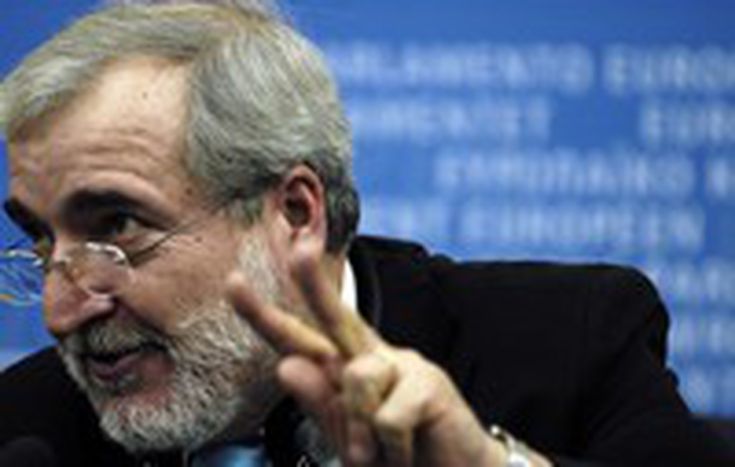
Guido Sacconi: 'Industrialists: enough with propaganda!'
Published on
Translation by:
 eleanor forshaw
eleanor forshaw
Italian MEP and REACH Rapporteur Guido Sacconi on the long haul for the regulation on chemical substances
'Now we can be sure that the shirt we put on this morning will not release dangerous substances.'
That is how Guido Sacconi, MEP and REACH Rapporteur, describes the first effect the new EU regulation on the registration of chemical products. The Socialist member of the European Parliament is beaming. 'REACH will finally bring under control the 30,000 chemical substances currently on the European market and present in so many day-to-day consumer products. Of those, only 300 are known to have risks for human health and the environment. Those dangerous substances that we do not know about will be identified – we think a few hundred, but maybe up to 2,000 – and we will carry out tests and implement an authorisations system that could lead to their removal from the market. It is a huge undertaking that has no precedent in the world,' explains Sacconi.
But REACH has not only made friends. The measure was at the centre of the most intense lobbying campaigns from the European chemicals industry, with whom the Italian MEP played an important mediating role.
A spokesperson we contacted from Mavesz, the Hungarian Chemical Industry Association, although fundamentally in agreement with the basic objectives of the measure, confirmed that REACH will have a high cost for SMEs.
Those are legitimate opinions. We, however, have worked hard in these last three years to find concrete solutions to favour small companies. I know that there will be sacrifices. But industrialists must not make this a basis for their propaganda.
You have significant professional experience in trade unions (FIOM-CGIL) during a very troubled period for Italian syndicates. What did this knowledge bring you when negotiating with various groups of conflicting interest during the talks for REACH?
The contexts are of course very different, but, in all negotiations, there are common dynamics. The important thing is that, ultimately, disagreements are brought to a minimum. I never expected the BusinessEurope group to be very happy with my requests, but, in the end, they did come round to my compromise, even if it was more or less in secret.
In the EU, it is mainly the Nordic countries that are leading the 'green revolution.' You are Italian. Is this a sign of the evolution of mentalities with regards to the environment?
I believe so. The avant-garde role that those countries have played has been important. A large part of the environmental legislation in Europe did nothing more than bring the rest of Europe in line with the results already achieved by the northern states. Now, however, there is a growing common 'green' sense between European public opinion and those who represent it politically. Mediterranean countries are on the move. Soon, central European countries will be joining us for a greener Europe.
Translated from Il relatore di Reach: «Non solo Scandinavia. Coscienza verde in tutta Europa»


